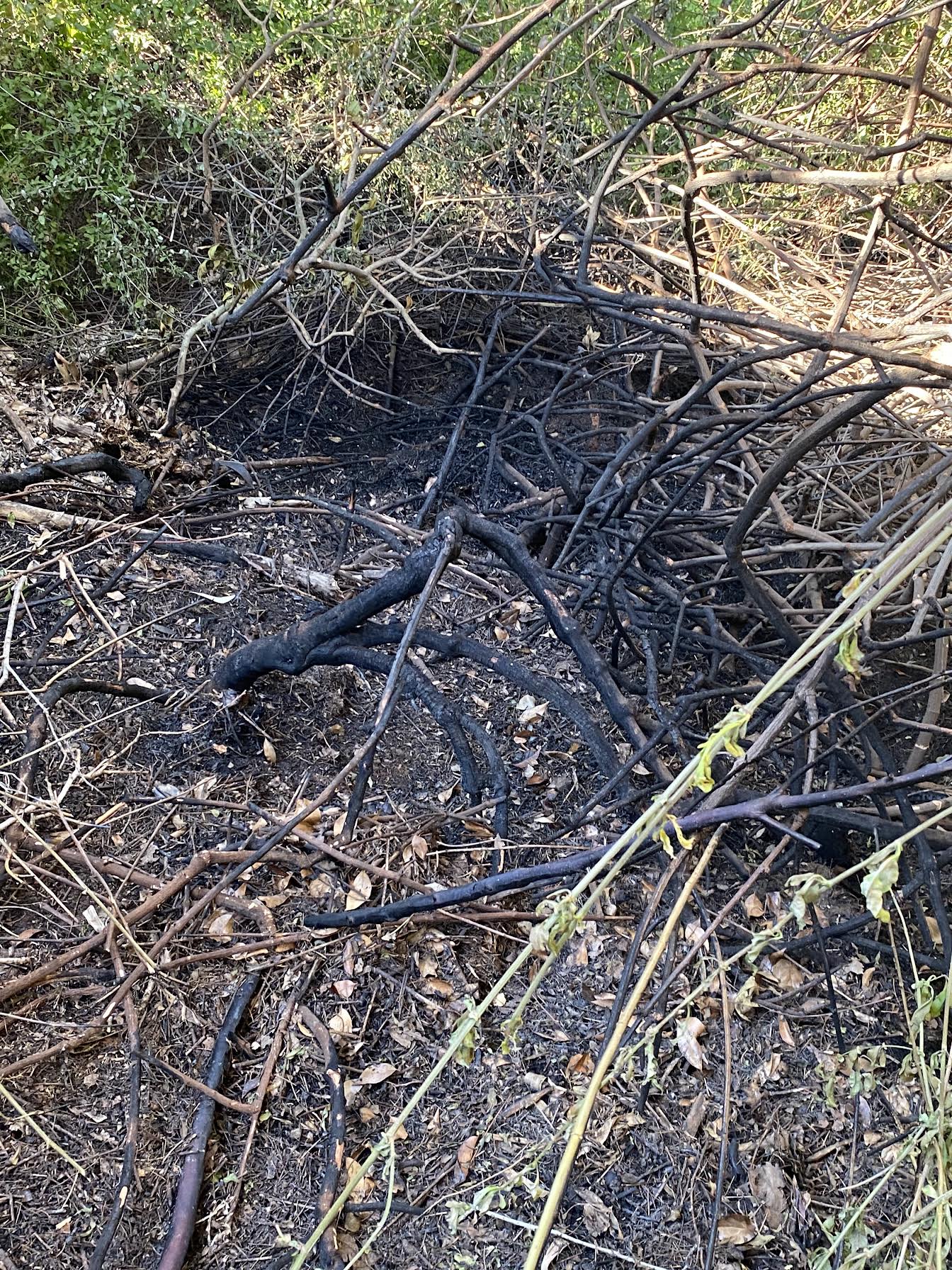Our communities are under siege — not by the homeless, but by the unchecked dangers of encampments along Caltrans and Union Pacific Railroad rights-of-way. It’s time to enforce the legally upheld camping ban to restore safety, slash crippling costs, and protect every resident of Goleta and Santa Barbara County. This isn’t about criminalizing homelessness or abandoning compassion. It’s about confronting the fires, crime, and blight that threaten our neighborhoods and redirecting resources to real solutions. We can’t wait another day to act.
Fires Threaten Everything We Hold Dear: Homeless encampments are tinderboxes. Cooking fires, makeshift heaters, and carelessly discarded cigarettes ignite blazes that endanger lives, destroy property, and overwhelm our fire department. Since 2020, Goleta alone has battled more than 55 fires directly linked to encampments, as reported by the Santa Barbara County Fire Department. Many flare up near eucalyptus trees, which can transform a spark into a raging wildfire in minutes.
The catastrophic fires in Pacific Palisades and Altadena are stark warnings of what’s at stake — entire neighborhoods reduced to ash. Enforcing the camping ban eliminates these preventable risks, safeguarding homes, businesses, and lives. Every moment we hesitate invites disaster.
Crime Invades Our Streets: Encampments aren’t just fire hazards; they’re magnets for illegal activity. Theft, drug use, and violence fester in these unregulated spaces, spilling into our communities and threatening the safety of families, businesses, and visitors. Police data reveals a troubling pattern: Call volumes for disturbances, break-ins, and assaults skyrocket near encampment sites.
In my small condominium association next to the Union Pacific Railway in Goleta, we’ve endured break-ins to storage units and vehicles, forcing us to spend $20,000 on secure fencing and repairs — a $500 hit per resident.
Enforcing the camping ban disrupts the conditions that create fire risks and restores safety and peace to our neighborhoods; this can be done without criminally punishing the homeless. You might ask, “but where will they go if not allowed to camp?” At best, into treatment and programs, then into temporary and long-term housing. But there may be some “tough love” steps needed to make that happen — and lead toward safer neighborhoods.
Cleanup Costs Rob Our Future: The financial burden of tolerating encampments is crushing. Every site we ignore becomes a landfill of trash, biohazards, and property damage, draining taxpayer dollars that could fund shelters, mental-health services, or job training. Across Goleta and Santa Barbara County, cleanup and repair costs run into the millions, siphoning resources from programs that address homelessness at its roots. My condo association’s $20,000 expenditure is just one example of the toll on ordinary residents. Enforcing the camping ban stops this wasteful cycle, freeing up funds for compassionate, effective solutions. It’s a fiscally responsible choice that strengthens our entire community.
Compassion Demands Action, Not Neglect: True compassion doesn’t mean turning a blind eye to squalor or exposing people to danger. It means offering pathways out of homelessness while protecting residents from the fallout of unchecked encampments — petty theft, disturbing behavior, and the constant threat of fires.
California’s Penal Code 602 provides a clear, court-upheld framework for enforcing camping bans. This isn’t about punishment; it’s about progress. By pairing enforcement with expanded shelters, outreach programs, and mental health support, we can address homelessness with dignity while ensuring our communities remain safe and livable.
Compassion must extend to everyone — those struggling on the streets and the residents living in fear next door.
Hidden Dangers Persist: While CalTrans and Union Pacific have made strides — clearing out notorious encampments along Highway 101 at Fairview and Castillo in Santa Barbara during the COVID-19 pandemic — hidden encampments continue to thrive. Tucked behind overgrown vegetation along CalTrans and Union Pacific properties, these sites are often ignored by law enforcement and local officials, despite desperate pleas from residents. Areas like Dearborn Avenue, Highway 217, and Modoc and Upper State in Goleta are now hotspots, threatening nearby homes and businesses. We need consistent, county-wide enforcement to ensure no corner of our community is left vulnerable. Half-measures won’t cut it.
A Unified Call to Action: Enforcing the camping ban is practical, legal, and urgent. It stops fires before they start, curbs crime before it spreads, and redirects resources to solutions that work. Caltrans, Union Pacific, law enforcement, and local governments must collaborate to clear these dangerous sites and prevent new ones from taking root. Residents must raise their voices, demanding accountability and progress. Our communities deserve better than the status quo — better than break-ins, blazes, and skyrocketing costs. They deserve decisive action that balances compassion with responsibility.
Let’s act now to enforce the camping ban and reclaim our neighborhoods. Goleta, Santa Barbara, and every community in our county deserve safety, stability, and hope. The time for excuses is over. Let’s make it happen.

